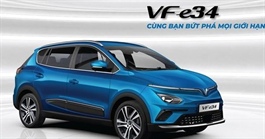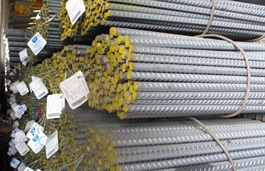Experts urge incentives to drive Vietnam’s electric car development
Experts urge incentives to drive Vietnam’s electric car development
The Ministry of Industry and Trade has warned that unless Vietnam gets on board with the development of electric and environmentally-friendly cars and adopts timely incentive policies, its automobile industry risks being left behind.
Small market
Two months ago, within 12 hours of its launch, the first Vinfast electric car model received nearly 4,000 orders, signaling the potential of Vietnam’s electric automobile industry.
|
According to the Vietnam Industry Agency (VIA) under the Ministry of Industry and Trade, approximately 300,000 cars are sold in Vietnam annually, but only 900 electric cars were imported in 2020 and 600 in the first quarter of 2021, most of them still hybrid models.
The agency analyzed the current state of the domestic automobile industry and the cautious development trend of electric cars in the world, and concluded that electric cars are unlikely to become a popular trend in Vietnam in the coming decade. It attributed this slow development to the limitations of the battery’s life cycle, the expensive price of the car and its replacement battery, and lack of public charging stations. In addition, Vietnam’s auto market is still small, hampering the development of the automotive industry in general, not just of electric cars.
Meanwhile, Vietnam has adopted almost no incentive policies to encourage the development of electric vehicles except for excise tax rates, which are lower than those imposed on gasoline/diesel vehicles.
The competition from regional countries to attract electric vehicle production is fierce. For example, Toyota Motor (Thailand) invested about US$570 million in a HEV battery production plant in Thailand, which became operational in 2020. Mercedes-Benz Manufacturing and BMW Manufacturing (Thailand) also set up production facilities, with an investment of about US$18 million and US$21 million respectively to manufacture HEV, PHEV and BEV vehicles.
Incentive policies needed
“The latest automobile development strategy and master plan were approved by the government in 2014 when there were few electric vehicles. The rapid development of electric vehicles in recent years requires Vietnam to have a new specific orientation,” said Deputy Director of the VIA’s Center for Supporting Industries Nguyen Thi Xuan Thuy.
The VIA pointed out that Vietnam and its ASEAN partners were evenly placed to attract investment in the production and assembly of electric cars, saying quick government adoption of preferential and support policies could give Vietnam an edge. The development of the electric vehicle industry needs to be integrated with the capacity of conventional automobile manufacturers and adapted to Vietnam’s traffic infrastructure.
Dr. Khuong Quang Dong, an expert with more than 30 years of experience in the French automotive industry, said the competition for electric cars will be fierce in the coming decades. He urged the government to facilitate the development of electric vehicles by expanding markets, promoting manufacture and research. Anticipating the development trend of electric cars will help Vietnam catch up with major markets in the world.
Therefore, supportive government policies are required to stimulate consumer demand and find common ground with car manufacturers, making them feel secure about investing in electric car production in Vietnam.
| Vietnam is entering the era of electrified cars similar to developed countries, but it will need more clear support policies for both consumers and businesses to seize this great opportunity. |
























